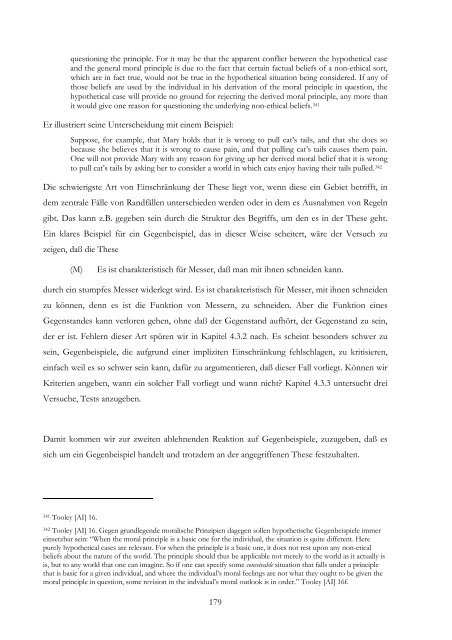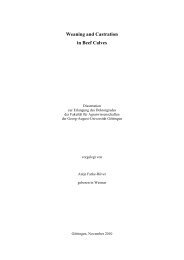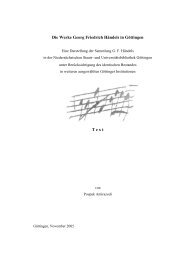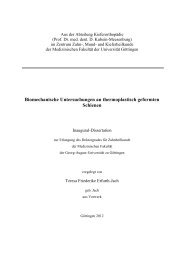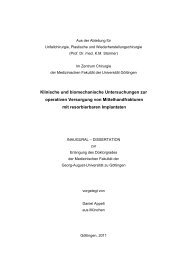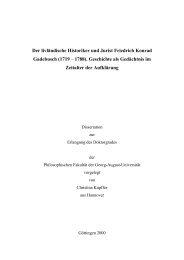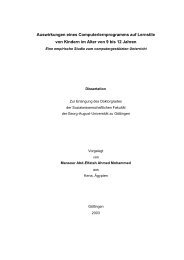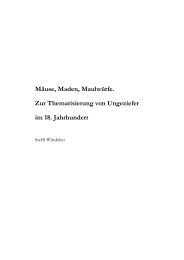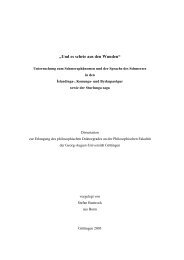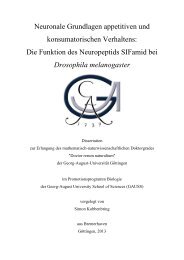Gedankenexperimente Eine Familie philosophischer Verfahren
Gedankenexperimente Eine Familie philosophischer Verfahren
Gedankenexperimente Eine Familie philosophischer Verfahren
Sie wollen auch ein ePaper? Erhöhen Sie die Reichweite Ihrer Titel.
YUMPU macht aus Druck-PDFs automatisch weboptimierte ePaper, die Google liebt.
questioning the principle. For it may be that the apparent conflict between the hypothetical case<br />
and the general moral principle is due to the fact that certain factual beliefs of a non-ethical sort,<br />
which are in fact true, would not be true in the hypothetical situation being considered. If any of<br />
those beliefs are used by the individual in his derivation of the moral principle in question, the<br />
hypothetical case will provide no ground for rejecting the derived moral principle, any more than<br />
it would give one reason for questioning the underlying non-ethical beliefs. 341<br />
Er illustriert seine Unterscheidung mit einem Beispiel:<br />
Suppose, for example, that Mary holds that it is wrong to pull cat’s tails, and that she does so<br />
because she believes that it is wrong to cause pain, and that pulling cat’s tails causes them pain.<br />
One will not provide Mary with any reason for giving up her derived moral belief that it is wrong<br />
to pull cat’s tails by asking her to consider a world in which cats enjoy having their tails pulled. 342<br />
Die schwierigste Art von Einschränkung der These liegt vor, wenn diese ein Gebiet betrifft, in<br />
dem zentrale Fälle von Randfällen unterschieden werden oder in dem es Ausnahmen von Regeln<br />
gibt. Das kann z.B. gegeben sein durch die Struktur des Begriffs, um den es in der These geht.<br />
Ein klares Beispiel für ein Gegenbeispiel, das in dieser Weise scheitert, wäre der Versuch zu<br />
zeigen, daß die These<br />
(M) Es ist charakteristisch für Messer, daß man mit ihnen schneiden kann.<br />
durch ein stumpfes Messer widerlegt wird. Es ist charakteristisch für Messer, mit ihnen schneiden<br />
zu können, denn es ist die Funktion von Messern, zu schneiden. Aber die Funktion eines<br />
Gegenstandes kann verloren gehen, ohne daß der Gegenstand aufhört, der Gegenstand zu sein,<br />
der er ist. Fehlern dieser Art spüren wir in Kapitel 4.3.2 nach. Es scheint besonders schwer zu<br />
sein, Gegenbeispiele, die aufgrund einer impliziten Einschränkung fehlschlagen, zu kritisieren,<br />
einfach weil es so schwer sein kann, dafür zu argumentieren, daß dieser Fall vorliegt. Können wir<br />
Kriterien angeben, wann ein solcher Fall vorliegt und wann nicht? Kapitel 4.3.3 untersucht drei<br />
Versuche, Tests anzugeben.<br />
Damit kommen wir zur zweiten ablehnenden Reaktion auf Gegenbeispiele, zuzugeben, daß es<br />
sich um ein Gegenbeispiel handelt und trotzdem an der angegriffenen These festzuhalten.<br />
341 Tooley [AI] 16.<br />
342 Tooley [AI] 16. Gegen grundlegende moralische Prinzipien dagegen sollen hypothetische Gegenbeispiele immer<br />
einsetzbar sein: “When the moral principle is a basic one for the individual, the situation is quite different. Here<br />
purely hypothetical cases are relevant. For when the principle is a basic one, it does not rest upon any non-etical<br />
beliefs about the nature of the world. The principle should thus be applicable not merely to the world as it actually is<br />
is, but to any world that one can imagine. So if one can specify some conceivable situation that falls under a principle<br />
that is basic for a given individual, and where the individual’s moral feelings are not what they ought to be given the<br />
moral principle in question, some revision in the indvidual’s moral outlook is in order.” Tooley [AI] 16f.<br />
179


